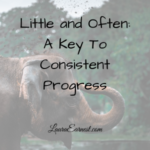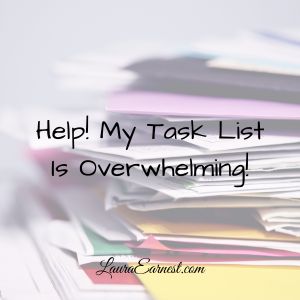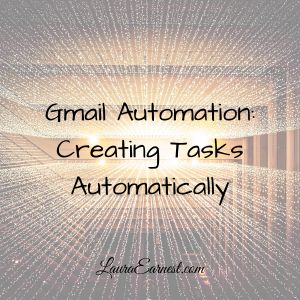How many times have you started something just to be stopped by having to fetch needed material or run to the store or do another task first? Wouldn’t it be nice just to have everything ready to go? It would certainly help us get started faster.
What Launches A Task?
I was recently making a recipe with my daughter, and we assembled the ingredients on the counter before we realized that one of the ingredients would have to warm up before we continued. We left everything out and went off to play a game. When we came back, we jumped right in to making the recipe. It was a smooth start, and went off very well.
I realized that this sort of pre-assembly, called mise en place in cooking, can be applied to any task to make it easier to get started.
Morning Routine
I’ve been a big fan of evening and morning routines. I am not a morning person, so having everything ready the night before as far as possible makes the morning go much smoother.
During this work-at-home time, morning routines aren’t so much focused on getting me out the door, but rather setting up for a smoother day.
I keep all the materials for my morning time in a bag: my iPad, my bullet journal, the book I’m reading. That way I can grab the bag and head to the porch in the morning. Everything I need is there without me having to make multiple trips to other parts of the house.
Having it all in one place means I can focus on the tasks at hand rather than assembling what I need to do them.
Preparing For The Next Task
This method of having everything ready can help you get started after a break.
When I am on a roll, programming or writing, I hate to have to stop for anything like meals, meetings, or bathroom because I inevitably lose my train of thought. I have learned that leaving my writing in the middle of a sentence, or my code with a breakpoint set or just having failed a test, allowed me to pick up very quickly with what I was doing.
I also do this overnight. Before I stop working for the day, I write down in my work journal what I accomplished and what the next task is I need to do. For example, today I wrote down the specific condition I needed to find in our database to prove or disprove a solution to update data.
The Secret
So the secret is merely preparation. Have everything out that you need to use to complete your task, and you will be able to start on it much easier. Having a note or prompt to help you regain where your mind should be prepares you for the after-break task.







